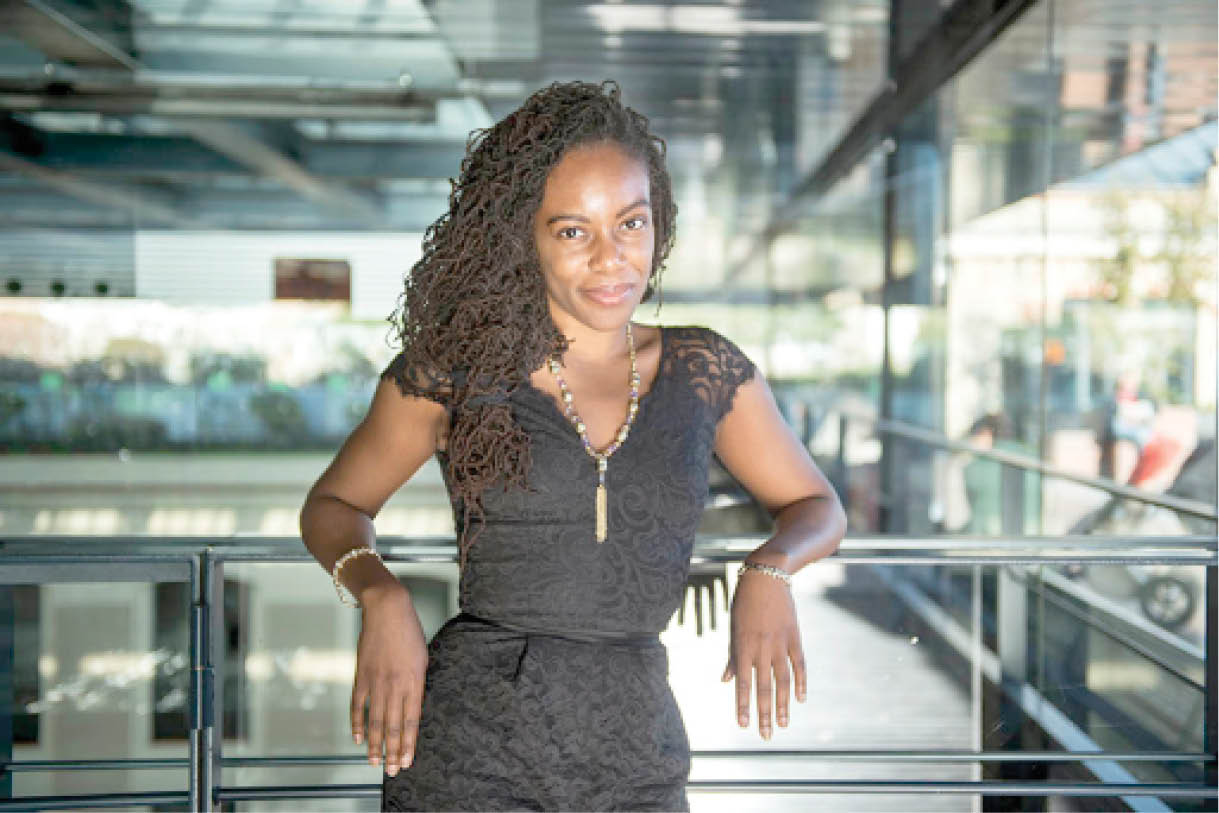I don’t write for awards – Chika Oduah
Chika Oduah is the quintessential ‘Jack of all trades’ who has managed to master all. She has made a name for herself in the media industry using her diverse skillset. In this interview, the 33-year-old television news producer, writer, photographer and correspondent, talks about her projects and challenges on the job, among other issues. How […]

‘I am inspired by women who work hard to build themselves’. Photo credit: Alvaro MInguito
Chika Oduah is the quintessential ‘Jack of all trades’ who has managed to master all. She has made a name for herself in the media industry using her diverse skillset. In this interview, the 33-year-old television news producer, writer, photographer and correspondent, talks about her projects and challenges on the job, among other issues.
How and when did you get started as a story teller?
I started telling stories in high school when I was in the U.S. I was around 15 and I wrote for the school paper. I had always been interested in international affairs and African affairs, especially as a Nigerian that was being raised in the U.S. Africa was always interesting to me because it was so far away. So, I wanted to tell stories about it.
You are a television news producer, writer, photographer and correspondent. How do you balance working on more than one project at a time?
Well, it takes a lot of self-motivation. You need to be able to encourage yourself. It also takes a lot of organization. Those are two things I am very good at. I organize my schedule well and know how to push myself. Although, it is important to be realistic and never put too much on your plate. You have to balance your ambition with reality. While ambition is good, you also have to pace yourself.
What is the most challenging project you’ve worked on so far?
It would be in reporting the Boko Haram insurgency. It is quite challenging because you have to get information from government officials. These officials sometimes don’t want to reveal too much or talk to journalists. The insurgency is obviously a huge issue that needs to be reported and [requires one to] go beyond superficial reporting. It requires really being on the government’s neck.
So, it doesn’t help things when the officials avoid journalists because they are very suspicious of journalists.
It is quite worse when it comes to international journalists like myself who are reporting for foreign outlets. They believe we have an agenda to make the Nigerian government look incompetent. This false perception and misconception really makes our work challenging.
Could you tell us about projects you’re working on right now?
I am currently working on two very exciting projects at the moment. I am writing my book and working on a documentary film.
Where do you see yourself in the next ten years?
I would like to still tell stories in as many forms as I can. I am the kind of person who has many interests – writing, photography, poetry, journalism, film and many more. So for me to be really contented in life, I would love to explore telling stories in all these areas without limiting myself. I want to express myself in as many ways as possible.

Who or what has had the most impact on what you do?
I am inspired by everyday people, marginalized people whose voices are not being heard in the mainstream media. I am also inspired by women who work hard to build themselves up and take care of their families.
You have won a lot of awards. Could you please tell us some of them and the one that means the most to you? Also, is there anyone you are looking forward to win?
I can’t really elevate anyone above the other. Every single award has their own importance to me and their place in my heart. I am not seeking awards and recognition. It is not one of my motivating factors. I am just seeking to tell stories as authentically and deeply as I can. That’s my award. I don’t tell stories for the awards. So, I am not really looking forward to any particular award.
What are the major challenges that you have faced in your career?
In the mainstream media, there is institutionalized racism. A lot of foreign media outlets don’t know how to work with black journalists. Black journalists working in some of these media outlets are sometimes paid less and looked down upon. When there are opportunities for fellowships, grants and other stuffs like that, most go to white people. That’s a big challenge. Some of the international media outlets, the editors and board of directors are all white, no black person is at the table.
Any advice for people who want to get into the media industry?
The first thing is they must read, read and read. That can’t be over emphasized. You can’t be an average reader, you have to be a lover of books. Reading not only tells you how to tell a good story, it also grounds you in your art and opens up your mind. It is extremely important. All of us have to read more.
Secondly, learn another language and be fluent in English and your mother tongue. Nigeria is surrounded by French speaking countries, it makes sense for us to learn French.
Also, it is important to figure out what you want to do because the media industry is so broad. Nigerians need to understand that being in the media industry is a very broad category. There is being an editor, correspondent, script writer, fact checker, producer, camera person, photojournalists and many more. So figure out what you really want to do in the industry and focus on practicing it.
